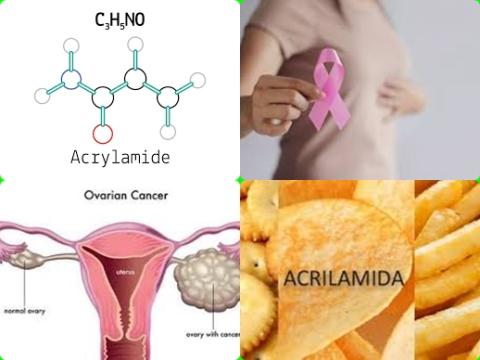
Objectives:
Does dietary acrylamide intake increase risk of breast, endometrial and ovarian cancer?
Study design:
This review article included 14 prospective cohort studies.
Results and conclusions:
The investigators found no significant association between dietary acrylamide intake and the risk of breast [RR = 0.95, 95% CI = 0.90 to 1.01], endometrial [RR = 1.03, 95% CI = 0.89 to 1.19] and ovarian cancers [RR = 1.02, 95% CI = 0.84 to 1.24].
In addition, no significant association between dietary acrylamide intake and the risk of breast, endometrial and ovarian cancers in different subgroup analyses by smoking status, menopausal status, BMI status and different types of breast cancer.
The investigators concluded there is no significant association between dietary acrylamide intake and the risk of breast, endometrial and ovarian cancers.
Original title:
Dietary acrylamide intake and risk of women's cancers: a systematic review and meta-analysis of prospective cohort studies by Benisi-Kohansal S, Salari-Moghaddam A, […], Esmaillzadeh A.
Link:
https://pubmed.ncbi.nlm.nih.gov/33413725/
Additional information of El Mondo:
Find more information/studies on breast cancer right here.
Acrylamide is a chemical that naturally forms in starchy food products during high-temperature cooking processes, such as frying, roasting and baking. Acrylamide in food forms from sugars and an amino acid that are naturally present in food.